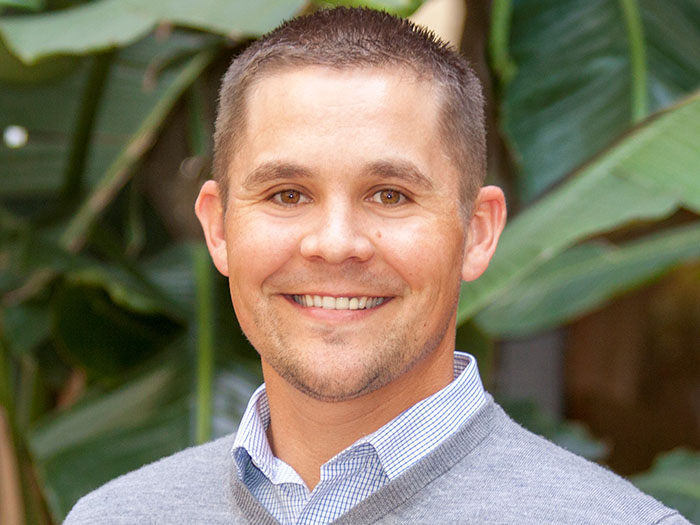The Advocacy Approach in Workers’ Comp May Be Its Talent Attraction Holy Grail

As the industry tries to fend off a looming talent crisis, workers’ comp payers might be asking themselves how can they attract more frontline claims professionals to the industry.
One session during the National Workers’ Compensation and Disability Conference (National Comp) attempts to answer this question using the results from the 2019 Rising Medical Solutions Workers’ Compensation Benchmarking Study.
The presentation, “Survey Says! What Your Claims Workforce Really Thinks & Strategies to Optimize Your Talent Pool,” features Rising’s Rachel Fikes, chief experience officer & director of the Workers’ Compensation Benchmarking Study, as well as principal study researcher and author Denise Zoe Algire, director of risk initiatives & national medical director for Albertsons Companies.
Study advisory council members Tom Wiese, vice president of claims for The MEMIC Group; and Dr. Adam Seidner, chief medical officer at The Hartford, also add expertise during the on-demand session.
Engaging Frontline Workers for the First Time
The 2019 study is the first time that frontline claims staff were engaged for responses, enabling the authors to compare their opinions to the views of 1,800+ past claims executives. This allowed researchers to gauge everything from how frontline workers understood worker advocacy to how much time they’re spending on compliance.

Rachel Fikes, chief experience officer & director of the Workers’ Compensation Benchmarking Study, Rising Medical Solutions
One of the central challenges facing the industry is the talent crisis, which will impact frontline claims staffing numbers, as significant numbers of workers’ compensation industry employees reach retirement age.
The good news is that how the industry is evolving in its treatment of injured workers could be an attractant for younger professionals.
“The study data shows that both claims leaders and frontline staff are now taking an employee-centric and advocacy-based view of claims management,” Fikes said.
“While, at the same time, we know that finding purposeful work is one of the biggest motivators for younger job seekers today. To address the talent crisis, we’ve got the opportunity to leverage a ‘perfect match’ in marrying young talent with purpose-driven work and advocacy models that are proven to generate better injured worker outcomes — we just have to develop better communication tactics to attract, retain, and deploy the next generation effectively.”
As that next generation is deployed, one of the key factors is the alignment of frontline staff and their leaders on core competencies. In the 2019 study, Rising found that indeed, frontline staff and executives agree on the top three: Medical Management, Disability/RTW Management, and Compensability Investigations.
The study notes that claims professionals who directly manage claims on a day to day basis have a huge impact on the financial success of an organization, so this alignment is good news for everyone.
Helping Claims Adjusters Find Meaning in Their Work
The time spent on administrative tasks, however, is a major issue for adjusters. A full 26 percent of respondents reported that they spend 40 percent or more of their time on internal compliance measures, as opposed to the external legal and state compliance measures that are out of the organization’s control.
For Seidner, this is one of the reasons that the talent crisis exists and limiting administrative tasks can lend purposefulness to the job, allowing the industry to attract and retain young talent.
“We’re working on that work purpose scoring as an industry, how do you make the job meaningful?” Seidner said.
“There are opportunities to expand the roles so that they’re embracing the advocacy part of it and really understanding more deeply the injured worker, the employee. By making it more employee-centric, we’re able to help make it more meaningful.”
The employee-centric element is key to the advocacy based claims model, which organizations have embraced for some time now.
For her part, Fikes has the data to back up the success of the advocacy-based model in terms of employee satisfaction.
“No matter what generation you’re in, I think virtually all employees desire meaningful work. When asked ‘Overall, do you find your job meaningful?’ in our 2019 survey, only 6 percent of frontline staff disagreed with this statement (38 percent strongly agreed, 42 percent somewhat agreed, and 14 percent neither agreed or disagreed),” Fikes said.
“While there is room to improve these numbers, to me, this says that the industry is certainly putting effort into creating meaningful work. Now we just need to clue in the job market!”
COVID-19 Affects on Workers’ Comp
Although it was not addressed in the 2019 study, a major part of the “Survey Says!” presentation assesses the effect that COVID has had on the workers’ compensation employee base, and the 2020 study will include data on changes brought on by the crisis.
In particular, COVID has forced workplace flexibility, which was rated one of the most important benefits by frontline staff in the 2019 study.
Wiese explained that he views the change as a positive development. “The industry is receiving a significant volume of COVID claims, so I think there are career opportunities out there. In my organization, we haven’t had anyone resign nor have we laid off anyone since COVID started. In fact, we’ve had growth in claim volume so we’ve added positions,” he said.
“COVID reached out and slapped executives in the cheek and said, ‘you know what, you can be flexible.’ Insurance-related organizations did not want to allow work at home to any significant level and they had a strong belief in face to face meetings, travel and customer experience. They had to learn quickly that their entire workforce can work at home and in fact they are doing it well, and that you can accomplish things without face to face meetings.”
Seidener echoed Wiese, emphasizing an additional need for employee resources as work from home becomes the norm and support for frontline staff becomes a necessary benefit.
“To do that, we have employee assistance resources, telehealth and telebehavioral health, but one area I would point to is digital therapeutics. Specifically, we have at the Hartford embraced [Pear Therapeutics] reSET and reSET-O,” Seidner said.
“reSET is for substance use disorder help, and reSET-O is for opioid use disorder help.” The Hartford is the first employer to add the only FDA-authorized prescription digital therapeutics for substance use disorder and opioid use disorder to its prescription drug plan.
The “Survey Says!” presentation originally aired on November 10th, and is available on-demand through the NWCDC registration site here. To learn more about the findings behind the presentation, pre-order the 2020 Workers’ Compensation Benchmarking Study report, which will be published in late 2020 or Q1 2021. It can be pre-ordered here. &
 The 2020 National Workers’ Compensation and Disability Conference virtual event occurred on October 21 with six engaging sessions on issues ranging from the industry’s response to COVID-19 to how it can prepare for the impending talent gap.
The 2020 National Workers’ Compensation and Disability Conference virtual event occurred on October 21 with six engaging sessions on issues ranging from the industry’s response to COVID-19 to how it can prepare for the impending talent gap.
The conference will continue producing educational content throughout the year through our on-going digital session series and our Comp Talks program, which will deliver on-demand, short form educational content to hit the busy schedules of workers’ comp professionals.
Our next digital session, “Survey Says! What Your Claims Workforce Really Thinks & Strategies to Optimize Your Talent Pool” will explore how frontline claims professionals, one of the industry’s most influential talent constituencies, view the industry in order to address the ways the industry can attain and retract new claims adjusters.
You can register for this talk, and other sessions in our series, here. Be sure to check back regularly, as new content is being added all the time!
Missed the one-day virtual event? You can watch all the session on-demand here.










